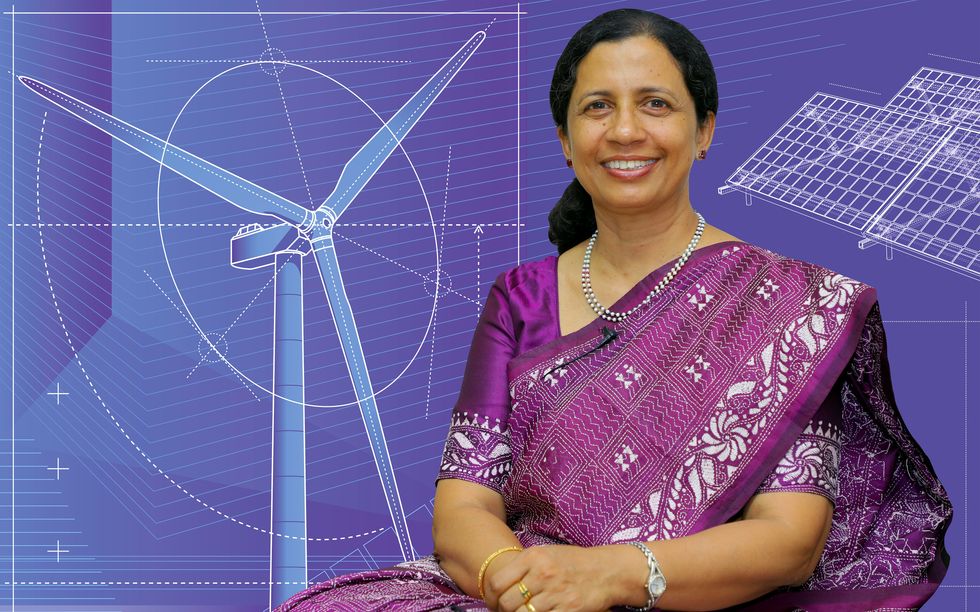Mini Thomas, an influential figure in the power industry, is dedicated to empowering women in the energy sector. Her remarkable journey spans several leadership roles, including dean of engineering at Delhi Technological University and the first female president of the National Institute of Technology, Tiruchirappalli. Currently a professor of electrical engineering at Jamia Millia Islamia University in New Delhi, she is actively working to increase female representation in the power and energy domains.
Thomas has leveraged her position as a senior member of the IEEE to advocate for women’s participation in technical fields. She emphasizes the importance of family support for women pursuing careers, acknowledging that many face challenges due to caregiving responsibilities. “For a woman to succeed, she needs a lot of family support,” Thomas states, recognizing that not all women have the same backing she received.
A Journey Shaped by Education and Mentorship
Born and raised in Kerala, India, Thomas initially faced societal expectations to choose between medicine and engineering. Fainting at the sight of blood eliminated medicine as an option, leading her to embrace her talent for mathematics and pursue engineering instead. Her parents, both educators, instilled a love for learning, but it was during her undergraduate studies at the University of Kerala that she discovered her passion for teaching.
After earning her bachelor’s degree in electrical engineering in 1984, Thomas completed her master’s at the Indian Institute of Technology, Madras, and began her teaching career at the National Institute of Technology, Calicut. A series of life changes, including marriage, prompted her move to New Delhi, where she pursued a Ph.D. in electrical engineering at the Indian Institute of Technology, New Delhi. By the age of 28, she had obtained her doctorate and joined Delhi Technological University.
Over the years, Thomas has made significant contributions to the field of electrical engineering and education. She established research labs and launched a master’s program in electrical power system management at Jamia Millia Islamia. Her innovative curriculum and dedication to student success earned her the 2015 IEEE Educational Activities Board Meritorious Achievement Award.
Empowering Future Generations
In 2016, Thomas became the first female president of the National Institute of Technology, Tiruchirappalli, marking a significant milestone in her career. Despite the honor, she missed teaching and returned to Jamia Millia Islamia in 2021. During her tenure as dean, she launched five new academic programs, further enhancing the university’s reputation in engineering education.
Thomas remains committed to mentoring women in the power industry. Through the South Asia WePOWER network, she trains mid-career women, equipping them with the skills necessary for advancement in their careers. The program, which serves participants from countries including Bangladesh, India, and Sri Lanka, aims to increase female representation in technical roles. A 2020 World Bank study highlighted that women in South Asia hold only 0.1 to 21 percent of technical positions in the power sector.
As one of 40 experts in the WePOWER initiative, Thomas teaches essential topics such as renewable energy and the significance of women in leadership roles. She attributes her own success to the mentorship she received and is passionate about giving back to the next generation of women leaders.
Throughout her 35-year journey with IEEE, Thomas has held various volunteer positions, significantly contributing to the organization. She emphasizes that volunteering has not only enhanced her professional growth but also fostered lasting friendships, including with 2023 IEEE President Saifur Rahman. Together, they have worked on initiatives like the IEEE Climate Change Collection, focusing on sustainability in engineering.
Mini Thomas’s commitment to education, mentorship, and the advancement of women in the power industry serves as an inspiring example of how one individual can make a profound difference in shaping the future of energy. “You should always do what you enjoy. For me, that’s teaching and volunteering with IEEE,” she reflects, underscoring her dedication to empowering others.
